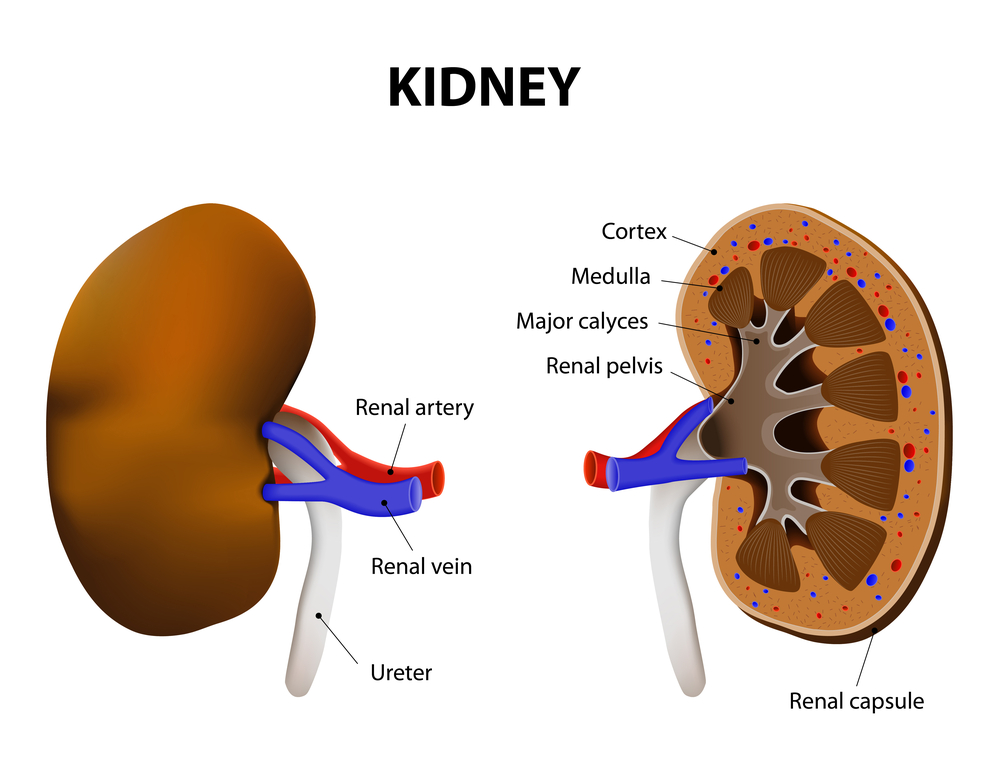A 71 year old female has a past medical history of osteoarthritis, GERD, osteoporosis, hypertension, anxiety, and depression. Her osteoarthritis has been a chronic problem and she complains of pain all over, but mainly in her hips and knees. She currently takes an occasional acetaminophen for pain.
Her current medications include:
- omeprazole 20 mg daily
- ranitidine 150 mg at bedtime
- Alendronate 70 mg weekly
- Calcium 500 mg BID
- Vitamin D 1,000 units daily
- Ativan 0.5 mg TID prn
- Buspirone 5 mg BID
- Zoloft 100 mg daily
- Losartan 100 mg daily
- Hydrochlorothiazide 50 mg daily
Celecoxib 200 mg BID was initiated at her last appointment by her physician. Her creatinine has now risen from 0.9 to 1.9. While celecoxib is considered better as far as reducing GI risk compared to traditional NSAIDs, it can definitely impact kidney function in a similar fashion.
What also put this patient at risk was her other medications. The hydrochlorothiazide as well as the losartan (especially in the presence of COX-2 inhibitors or NSAIDs) both can increase the risk of worsening kidney function.
Alternative medications for osteoarthritis might include trying to maximize the acetaminophen. Tramadol would be a consideration as well. Serotonin risk isn’t huge in my mind, but is there with tramadol, so taking it cautious with a small starting dose would be important. Topical therapy is hard to justify if this patient does have pain all over. Non-pharmacologic therapies are always an important consideration and should not be overlooked.
Enjoy the blog? Nearly 4,000 pharmacy loving people from around the world have signed up to follow the blog, get a free gift simply for signing up! – My 30 medication mistakes PDF!



If the patient has a history of generalized pain and depression, along with osteoarthritis, I wonder if she would benefit from something like duloxetine, which is indicated for the latter two conditions (and also for fibromyalgia). If her hypertension is controlled and the risk of serotonin syndrome low, might it be worth a try?
Over 65 years old; duloxetine is not recommended.
For depression, it may be appropriate to try her on cymbalta which may help her for her overall pain.
Lorazepam makes her a falls risk and judging from her meds, she has osteoporosis. Why would she need both omeprazole and ranitidine. Try pantoprazole instead. Perhaps reducing the thiazide may be useful. If she is overweight, education on losing wt, may help her osteoarthritis and bp.
Anytime someone is on PPI’s I immediately look at drug – nutrient depletions. Knowing how long she has been on the PPI is important. I try to encourage patients to look at alternative options also. Omega 3’s and turmeric are both know to reduce inflammation and could possibly decrease pain.
using Zoloft with buspiron might cause death (rarely because of SS)
She should regularly takes acetaminophène 650mg (long reeased) q8h
Naproxen used mildly is currently considered by most clinicians to be the go to nsaid.